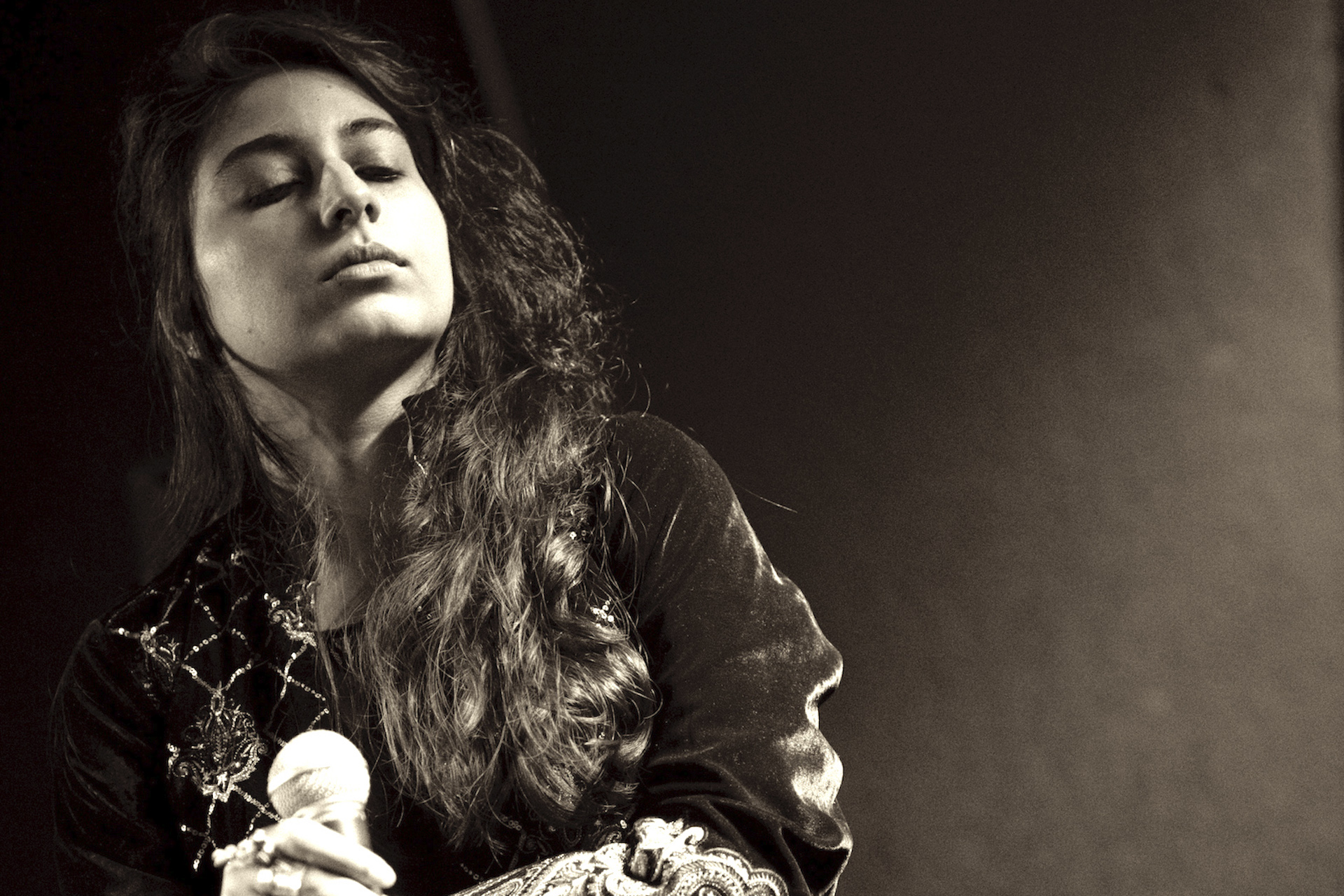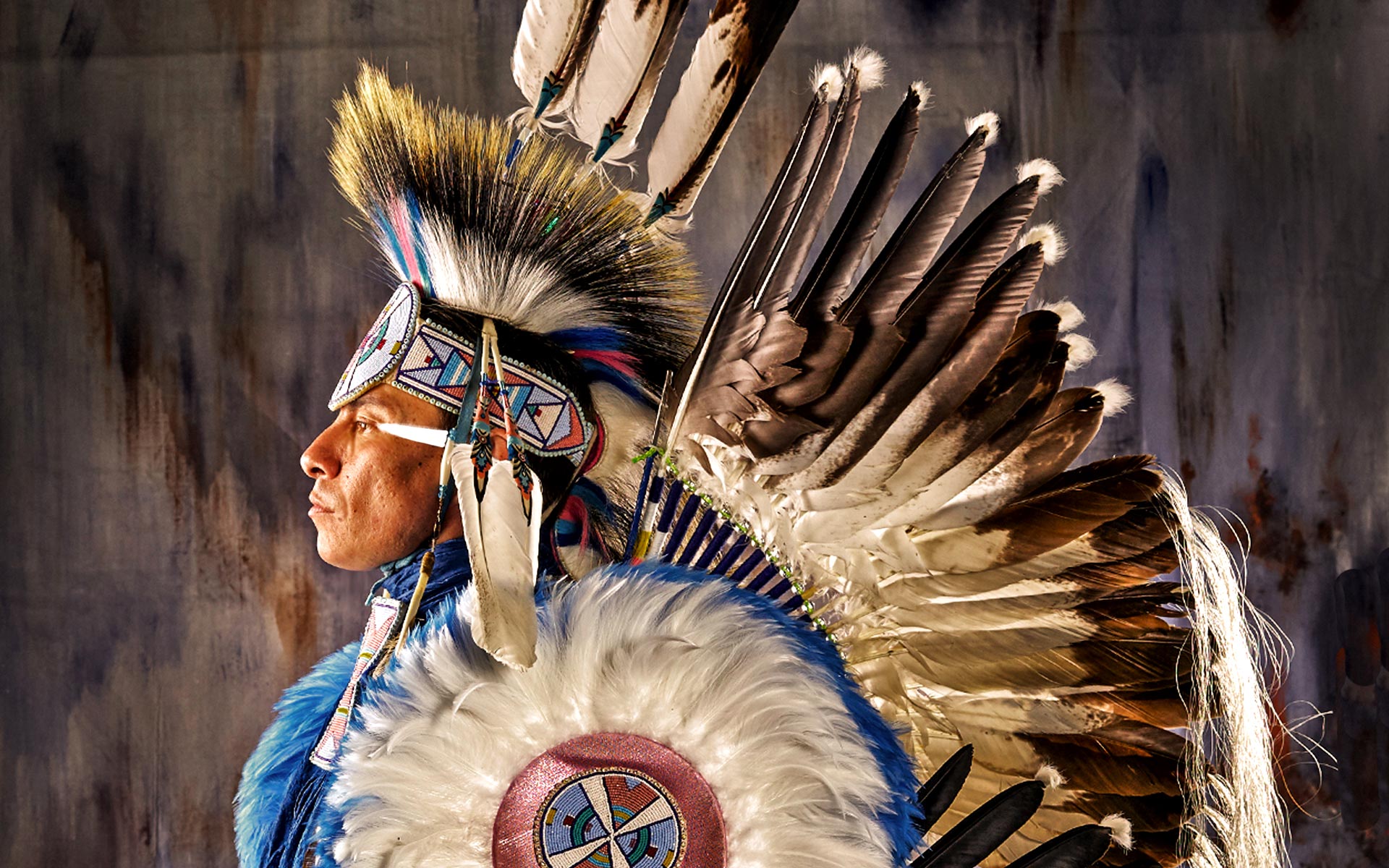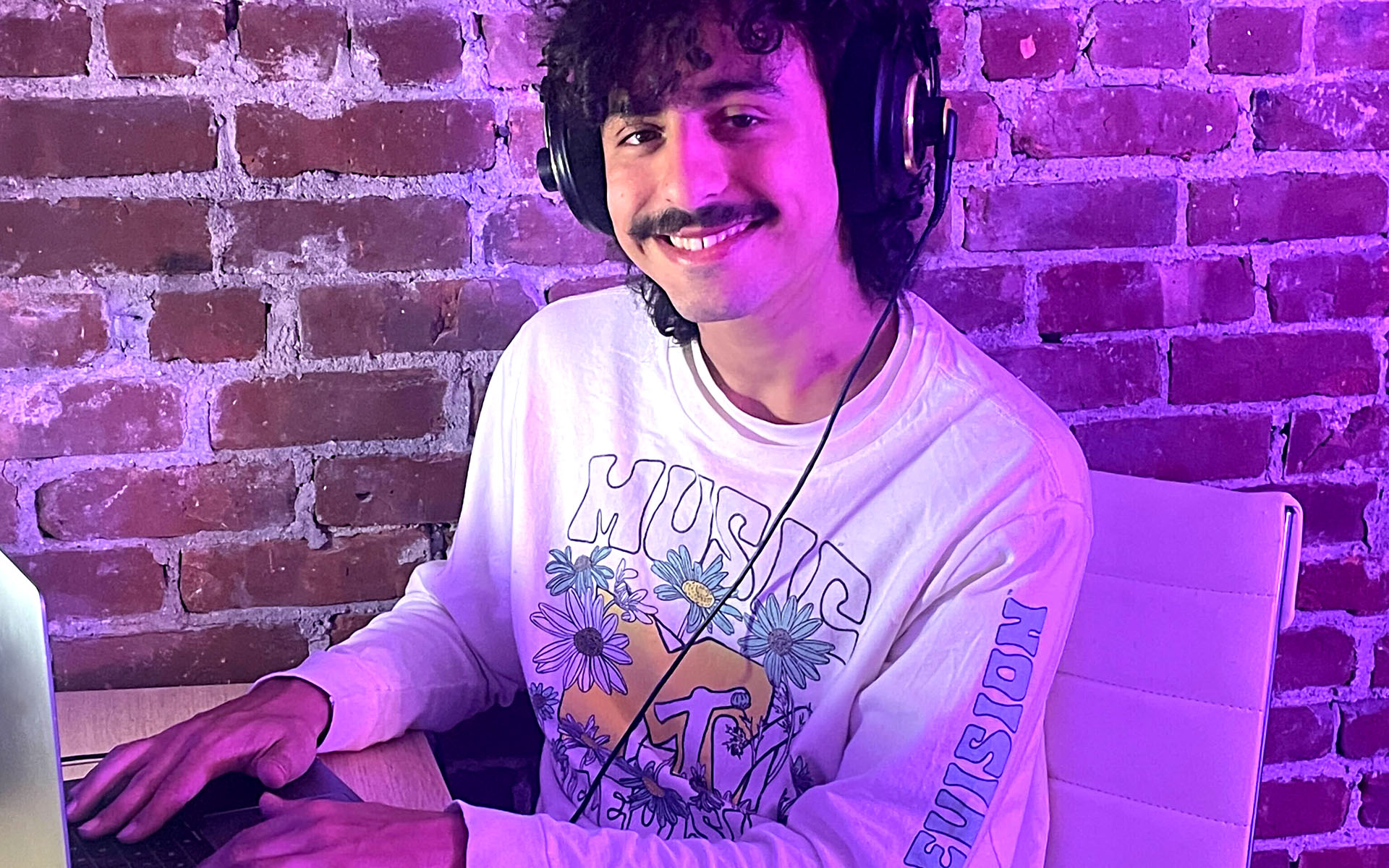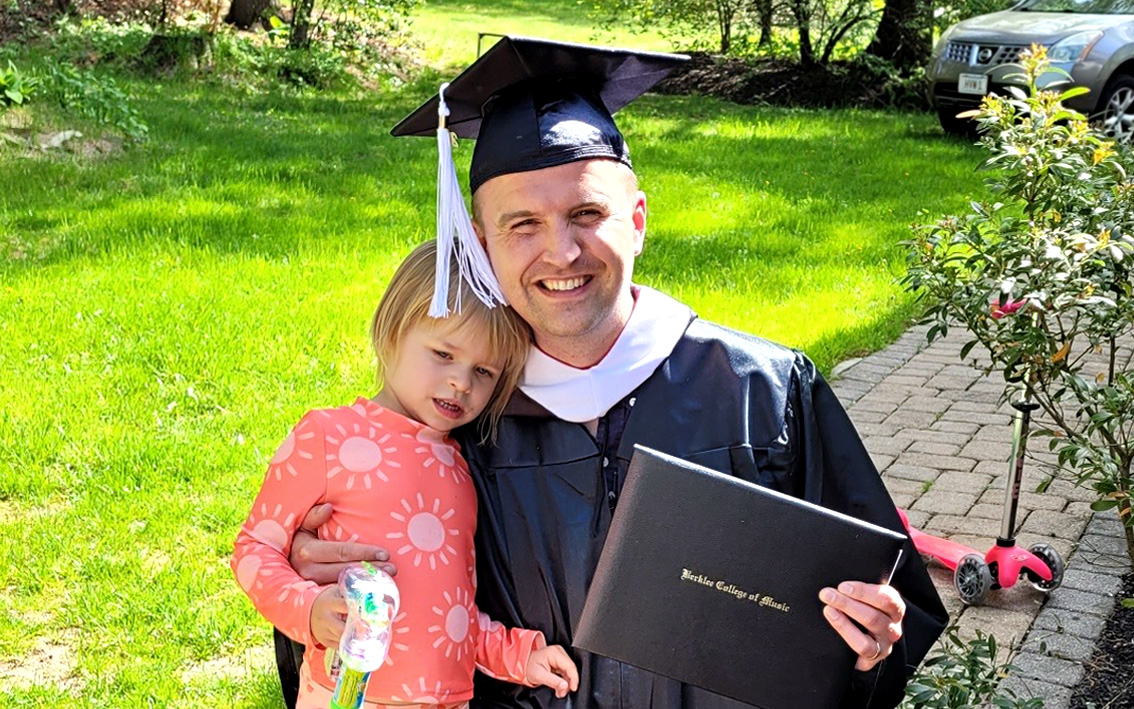Photo by Matika Wilbur
November in the US is National Native American Heritage Month. In spite of the fact that the people who later colonized the country nearly destroyed the Native populations entirely, their culture is still very much alive, especially through music. Listening to and supporting music by Indigenous musicians won’t undo history, but it will allow you to better understand the concerns of Native people, through their music and lyrics. The messages shed light on how the atrocities of the past are still wreaking havoc on the present, how ancient solutions can solve modern problems, and the importance of preserving and having pride in your roots.
Given the time of year and the current reckoning happening in the US and Canada related to the treatment of their Native people, this playlist focuses on music by Indigenous artists who occupy land now considered the Americas. However, it’s important to recognize that there is an endless amount of music to discover by Indigenous musicians from around the world, and that Indigenous communities are interconnected despite geographical borders.
Scroll all the way down to listen to this playlist on Spotify.
Supaman
Given the name Christian Parrish Takes the Gun at birth, Supaman is a rapper, fancy dancer (a style of Native American dance), and a member of the Apsáalooke Nation. That’s him in the photo above! He lives on the Crow reservation in Montana. Supaman is a NAMMY (Native American Music Award) winner, and was the recipient of the 2017 MTV Video Music Award for “Best Fight Against the System” for his part in “Stand Up/Stand N Rock #NoDAPL.” He tours extensively throughout the US and abroad, sharing his presentation of native culture through hip-hop, dance, DJing, and comedy. Supaman’s latest album is Medicine Bundle featuring the track “Alright.” In the 2022 music video, Supaman references Back to the Future by stepping out of a Delorean to share his music.
Listen to: “Alright” by Supaman featuring Neenah (Produced by Nottz)
J25 (Jezelle Childs-Evans)
Jezelle Childs-Evans, whose artist name is J25, is a member of the Chickasaw Nation. This year, she was nominated for best rap and hip-hop music video at the Native American Music Awards for her song “Indigenous” off of her 2022 album Grand Entry. Childs-Evans recently collaborated with StenJoddi, who is a rapper and star of the Hulu series Reservation Dogs. In an interview with the Green Bay Press-Gazette, Childs-Evans said, “What I love most is that we all bring a strong message to the industry about issues that impact our tribes while staying in tune with our traditions and values. Music is good medicine and positive energy that we want to spread across the globe.”
Listen to: J25’s 2022 song “Indigenous”
Raye Zaragoza
From NYC and now based in LA, Raye Zaragoza is a protest folk singer/songwriter who released her latest sophomore album Woman in Color, on her own independent label, Rebel River Records. With a mother who emigrated from Japan and a father who is of Mexican and Indigenous descent, Zaragoza’s lyrics talk about her experience of being mixed race, as well as social justice issues that Indigenous communities are facing. Her song “Red” off her latest album is about missing and murdered Indigenous women, “American Dream” off her 2017 album Fight for You is about the Trump presidency, and “Driving to Standing Rock” is about the Dakota Access Pipeline protests. Zaragoza’s music is also featured in the new Netflix children’s show, Spirit Rangers, and she appeared on NPR’s Tiny Desk (Home) Concert.
Listen to: Raye Zaragoza’s song “Fight Like a Girl”
Laura Niquay
A grunge-folk, singer/songwriter from the Indigenous community of Wemotaci, Canada, Laura Niquay’s Atikamekw identity is at the forefront of her music. Her 2021 album Waska Matiwisin, translates as “circle of life” from the Atikamekw language, and as the title suggests, covers everything from birth to death. Niquay meticulously researched the album’s vocabulary, consulting with elders and working with techno-linguists. In an interview with Words and Music, she says, “Our Nation has three distinct communities that all speak Atikamekw slightly differently. I have nephews and nieces who live in the city, and who are slowly losing the use of our language, and this affects me a lot. It’s important for me to sing properly in our language.” The intention behind Niquay’s lyrics and pronunciation makes it that much more meaningful. She is the recipient of the SOCAN Foundation’s annual TD Indigenous Songwriter Award for 2022.
Listen to: “Moteskano” from Niquay’s 2021 album Waska Matiwisin
Hataalii
Hataałiinez Wheeler is a singer/songwriter from Window Rock, Arizona, in the Navajo Nation. At the onset of the pandemic, Wheeler wrote and recorded his second full-length album, Painting Portraits, which he played all of the instruments on. The album features lyrics in both English and Navajo and was picked up by an art collective in Taos, New Mexico, called Psychic Sink. They pressed the album into vinyl and sold out all of the copies. In 2021, the same year that he graduated high school, Hataalii released his self-titled third album, as well as an EP called First Take which he made with classmate Jakob Jaques. If you dig Mac DeMarco’s mellow style, then Hataalii’s guitar sound and vocal stylings will definitely resonate with you.
Listen to:Hataalii’s 2022 single “Land of Poor Chance”
Black Belt Eagle Scout
Black Belt Eagle Scout is the music project of Katherine Paul, who grew up on the Swinomish Indian Reservation in Washington state. She signed with Saddle Creek, and her latest album was praised by NPR Music, Stereogum, and dubbed the Best Rock Album of 2018 by Pitchfork. Identifying as a Radical Indigenous Queer Feminist, all of her music videos have been directed by trans, queer, or genderfluid Indigenous artists and have highlighted Indigenous girls and native people who identify as Two-Spirit. But regardless of any group that she identifies with, there is something universal about her songwriting that you can relate to. Check out KP’s interview on Berklee Online’s Music is My Life podcast.
Listen to: “Soft Stud” from Black Belt Eagle Scout’s 2018 album Mother of My Children. Also check out her powerful new single “Don’t Give Up.”
Punahele
Paul Punahele Kutzen is a hip-hop artist from Mākaha on the Hawaiian island of Oahu. Punahele first became inspired to write music about change after listening to Tupac as a child. In an interview on the podcast Native Stories, he says that rapping became an outlet for his struggles, and has been paying it forward by teaching hip-hop to youth in Hawaii, including those who are incarcerated. Punahele is an outspoken advocate for halting the construction of a 30-meter telescope on Maunakea, which is a sacred site to Native Hawaiians and is the world’s largest mountain when you consider that its base begins underwater. After the 2019 protests, Punahele recorded an album titled From Beneath Maunakea, which depicts the five-month fight.
Listen to: “Do Your Homework” from the album From Beneath Maunakea
Lido Pimienta
Currently living in Toronto, Lido Pimienta identifies as queer, Afro-Colombian, and Indigenous Wayuu. In 2020, her album Miss Colombia was nominated for a Latin Grammy, and she became the first female composer of color to write a piece for the New York City Ballet. She first rose to prominence when she won a Polaris Prize for her 2016 album La Papessa. Miss Colombia is a reference to Steve Harvey accidentally announcing the winner of Miss Universe as Miss Colombia when it was actually Miss Philippines. On her website, she says this caused her to reflect on the “anti-Blackness she experienced as a child growing up in Barranquilla.” The rhythm track of “Nada,” from that album is nothing short of hypnotic.
Listen to: “Nada” from the album Miss Colombia
T-Rhyme
T-Rhyme, or Tara Campbell, is a rapper with Denesuline and Northern Cree roots. Growing up in northern Saskatchewan, T-Rhyme shared in The Guardian that her mother was one of the 150,000 Indigenous children to attend a government-run residential school in Canada, which were intended to force Christianity and the English language upon them.
Residential schools were established in the late 1800s and the last one closed only in 1998. In 2021, the discovery of more than 1,300 unmarked graves at former residential schools, including in Saskatchewan fueled horror and outrage worldwide. The Washington Post reports that 4,100 children died in Canada alone, and experts think the figure is actually closer to 15,000. More than 367 boarding schools operated similarly in the US, and according to the National Native American Boarding School Healing Coalition (NABS), 15 boarding schools and 73 total schools with federal funding remain open.
“We Indigenous people that are still here raising our children have to keep fighting the good fight, and not only process grief but celebrate resilience,” says T-Rhyme. Her music is the perfect vehicle to both keep fighting and celebrate that resilience.
Listen to: T-Rhyme’s single “Revitalize”
Kalani Peʻa
Kalani Peʻa is a three-time Grammy Award winner for Best Regional Roots Music Album, the only Native Hawaiian to win in this category. He is the co-owner of Pe’a Records & Entertainment with his husband and manager, Allan B. Cool. His 2021 album Kau Ka Pe’a was written during the pandemic and pays homage to the people and places that he loves, including Hawaii’s leaders of the past. In an interview with The Maui News he says, “My last name is Pe’a, which means a sailboat. When I thought of the word sail, I realized we’re all hoisting our own sail during this pandemic. We all have to hoist our own sail and chart our own journey. We have to be effective through change.”
Listen to: The title track of the album “Kau Ka Pe’a,” featuring Pandanus Club, Kimie Miner, and Kalenakū
Terry Uyarak
After encouragement from his Inuit community in Igloolik, which is an island north of the Arctic Circle, Terry Uyarak released his 2020 debut album Nunarjua Isulinginniani. The name translates to “Before the World Ends,” which felt like it was a possibility to Uyarak during the height of the pandemic when he recorded these songs. His goal was to have a piece of work to inspire his children one day, and to remind young Inuit to remember their roots. The album features storytelling by Igoolik elder Simon Qamaniq, as well as sounds of his dog team and the whistling arctic winds. In an interview with CBC, he says, “[Inuit] went through so much change with our parents and our grandparents, especially with being completely nomadic to our lifestyle now. If I could send a message to people, it would be that we go back a bit to our roots and tell each other that we can overcome any situation.” In June 2022, Uyarak released a new EP titled ATIILU!, which electrifies three tracks from his debut.
Listen to: Uyarak’s single “Inuit Nunangat”
Spotify Playlist:
At Berklee Online, we acknowledge that the land our office resides on is the ancestral homeland of the Pawtucket, Massachusett, Nipmuc, and Wampanoag tribal nations. Learn more about whose land you live on and occupy.
Special thanks to Berklee Online course producer Carlyn Costales for her Hawaiian music recommendations and input.











